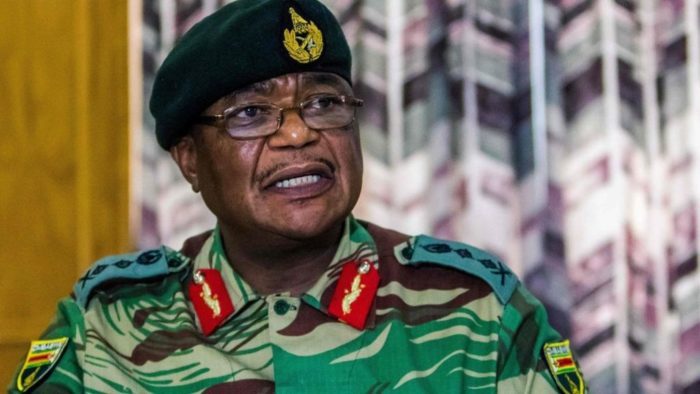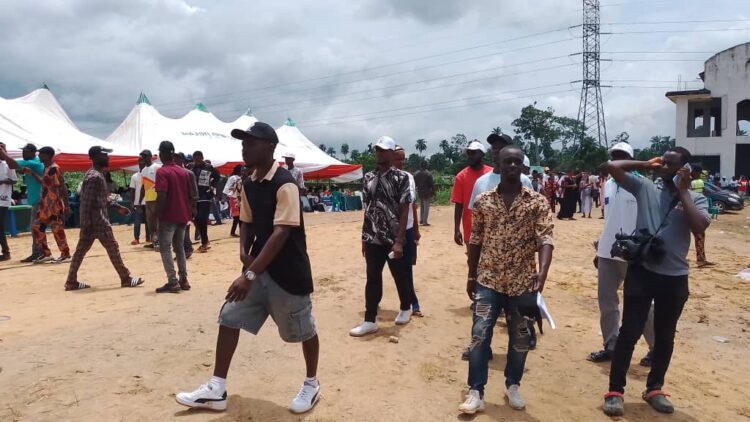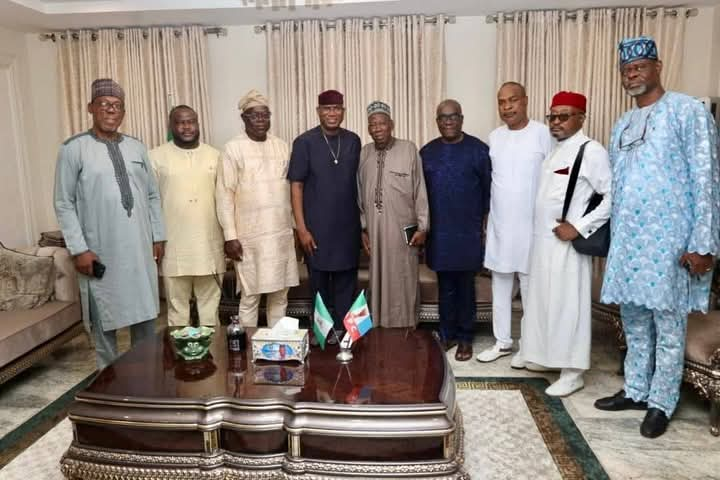Zimbabwe’s military has taken over control of the country but the army generals said they have not staged a coup yet and that President Robert Mugabe is safe.
According to reports, the generals used state television on Tuesday night to vow to target “criminals” close to Mugabe.
Mugabe’s decades-long grip on power was dramatically weakened as military vehicles blocked roads outside the parliament in Harare and senior soldiers delivered a late-night television address to the nation.
“We wish to assure the nation that his excellency the president… and his family are safe and sound and their security is guaranteed,” Major General Sibusiso Moyo said, slowly reading out a statement.
“We are only targeting criminals around him who are committing crimes… As soon as we have accomplished our mission we expect that the situation will return to normalcy.”
Moyo said “this is not a military takeover of government”.
But the generals’ actions posed a major challenge to the ageing Mugabe, 93, who has ruled Zimbabwe since independence from Britain in 1980.
Tensions between the veteran leader and the military, which has long helped prop up his authoritarian rule, have erupted in public in recent days.
The ruling ZANU-PF party on Tuesday accused army chief General Constantino Chiwenga of “treasonable conduct” after he criticised Mugabe for sacking vice president Emmerson Mnangagwa.
Mnangagwa’s dismissal left Mugabe’s wife Grace, 52, in prime position to succeed her husband as the next president — a succession strongly opposed by senior ranks in the military.
As the situation deteriorated overnight, prolonged gunfire was heard near Mugabe’s private residence.
The US embassy warned its citizens in the country to “shelter in place” due to “ongoing political uncertainty”.
Armoured vehicles in the capital alarmed residents as Chiwenga had warned of possible military intervention. The army’s spokesman was not available to comment.
“The government’s silence on the military deployments seem to confirm that President Mugabe has lost control of the situation,” Robert Besseling, of the London-based EXX Africa risk consultancy, said.
“Any coup would be likely to involve the imposition of a curfew.
“The main indicator of a broader outbreak of violence would be the reaction of the Presidential Guard, which remains loyal to President Mugabe.”
Mugabe is the world’s oldest head of state, but his poor health has fuelled a bitter succession battle as potential replacements jockey for position.
In speeches this year, Mugabe has often slurred his words, mumbled and paused for long periods.
His lengthy rule has been marked by brutal repression of dissent, mass emigration, vote-rigging and economic collapse since land reforms in 2000.
The main opposition MDC party called for civilian rule to be protected.
“No one wants to see a coup… If the army takes over that will be undesirable. It will bring democracy to a halt,” shadow defence minister Gift Chimanikire, told AFP on Tuesday.
Speculation has been rife in Harare that Mugabe could seek to remove Chiwenga, who is seen as an ally of ousted Mnangagwa.
Mnangagwa, 75, was widely viewed as Mugabe’s most loyal lieutenant, having worked alongside him for decades.
Earlier this year the country was gripped by a bizarre spat between Grace and Mnangagwa that included an alleged ice-cream poisoning incident that laid bare the pair’s rivalry.
Grace Mugabe — 41 years younger than her husband — has become increasingly active in public life in what many say was a process to help her eventually take the top job.
She was granted diplomatic immunity in South Africa in August after she allegedly assaulted a model at an expensive Johannesburg hotel where the couple’s two sons were staying.
As the economy collapsed, Zimbabwe was engulfed by hyperinflation and was forced to abandon its own currency in 2009 in favour of the US dollar.
The country, which has an unemployment rate of over 90 percent, is due to hold elections next year with Mugabe pledging to stand for office again. (NAN)





